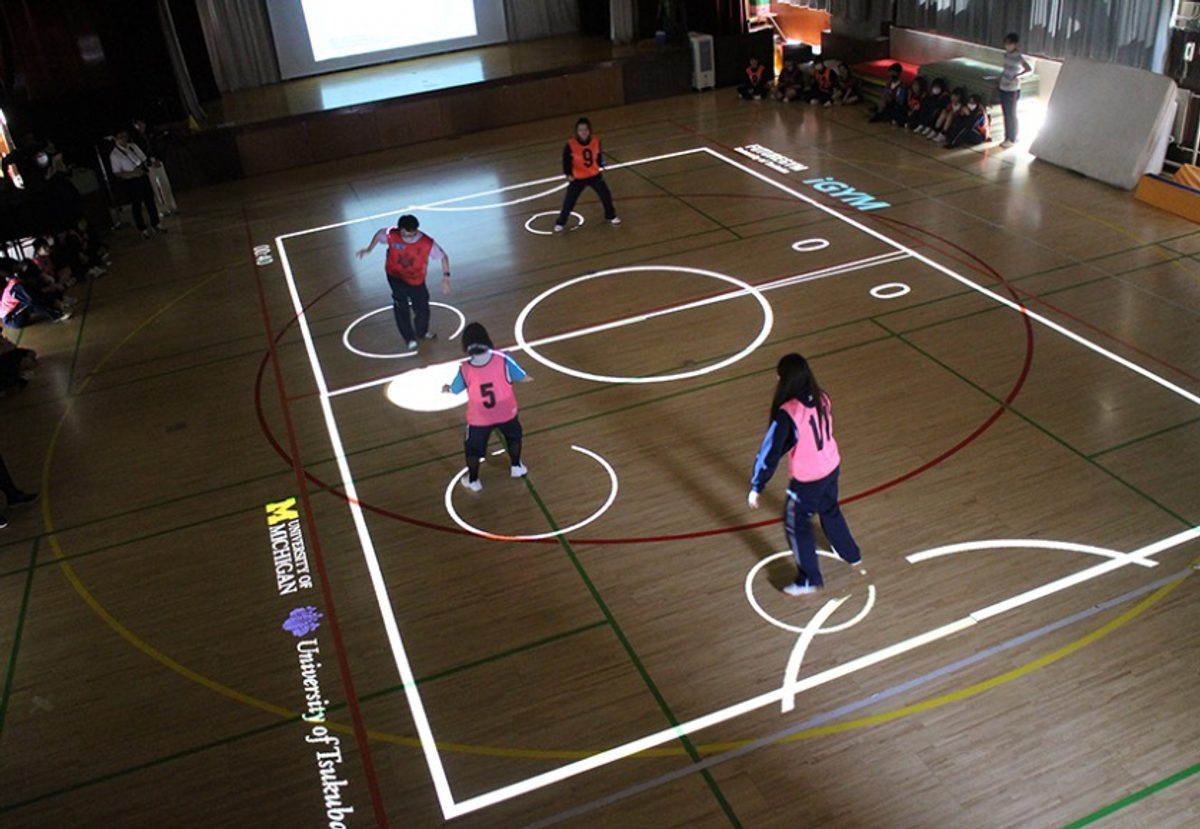iGYM<>FUTUREGYM Collaborate on Inclusive Augmented Realities

An interdisciplinary team of artists/designers, engineers, and human-computer interaction researchers from the University of Michigan is collaborating with the University of Tsukuba in Japan on using augmented reality to create inclusive play and recreational activities for children.
iGYM is a spatial augmented reality (AR) system for inclusive play and exercise. The exergame system uses projected AR to create a room-sized, interactive game environment. It gives players with mobility disabilities and those without the opportunity to play head-to-head in a traditional, physical sports setting. iGYM was recently featured at the U‑M Celebrate Invention event that honors U‑M inventors and the impact of innovative projects.
Associate Professor Roland Graf from the Stamps School of Art & Design, who initiated the project is one of the co-leaders of it, along with Associate Professor Hun Seok Kim from the College of Engineering and Associate Professor Michael Nebeling from the School of Information. Stamps Associate Professor Sun Young Park also contributed to the project.
“The creation of iGYM has shown the powerful potential of augmented reality to help people of varying abilities access recreational activities,” said Graf. “This technology creates equitable opportunities for people to improve their health and quality of life, and promises to become one of many ways sports and exercise can be adapted to specific needs.”
In early October 2023, the iGYM team started an international collaboration with FUTUREGYM, a research group from the University of Tsukuba. The Japanese research team visited the U‑M iGYM team on campus for a research and technology development workshop where they worked on academic workshop proposals and the iGYM>FUTUREGYM system and game integration for the social event in Tokyo.
The FUTUREGYM Team has been working on supporting activities aligned with the educational curriculum for children with special needs (i.e., intellectual disabilities and autism spectrum disorders) at the Otsuka Special Needs School affiliated with the University of Tsukuba by utilizing a large-scale floor projection system that they installed in the school’s gymnasium since 2015.
Then, on October 28th, the first result of the iGYM<>FUTUREGYM efforts was implemented at a social event with 21 students from the high school section of the University of Tsukuba-affiliated Otsuka Special Needs School and 25 second-year students from the University of Tsukuba-affiliated Sakado High School. For this event, iGYM’s air hockey game and circle interaction feature was integrated into the FUTUREGYM system; it was used in an ice-breaking play session for which students were paired up in teams, each comprising one student from each school to compete against each other. The FUTUREGYM Team facilitated the event on-site, and Graf from U‑M’s iGYM team and Professor Kenji Suzuki from the University of Tsukuba participated via Zoom.
In the future, both teams plan to conduct further research and social events and continue the system integration to include people using wheelchairs and supporting inclusive physical activities.
Story by Jen Hogan.